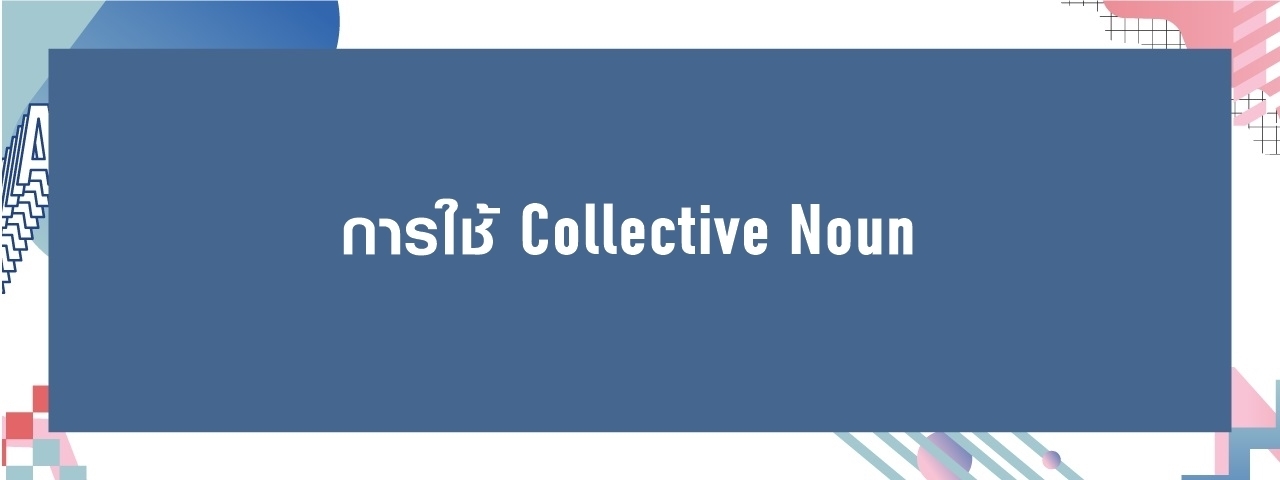

 60,271 Views
60,271 ViewsHerd (ฝูงสัตว์สี่ขา)
That tiger is chasing a herd of buffaloes. (เสือตัวนั้นกำลังไล่ล่าฝูงควายฝูงหนึ่ง)
Flock (ฝูงสัตว์ปีก)
I looked at the sky and saw a flock of birds. (ฉันมองดูฟ้าและเห็นนกฝูงหนึ่ง)
Swarm (ฝูงแมลง)
Please be aware of the swarm of bees over there. (โปรดระวังฝูงผึ้งตรงนั้น)
Shoal, school (ฝูงปลา)
A shoal of fish was caught this morning. (ปลาฝูงหนึ่งถูกจับเมื่อเช้านี้)
The shark swam with a school of salmon. (ปลาฉลามได้ว่ายน้ำไปกับฝูงปลาแซลมอน)
Packet (กองเอกสาร)
Mom hands me a packet of letters. (แม่ยื่นกองจดหมายให้ฉัน)
Bunch (พวง, ช่อ)
Two bunches of bananas are given to me. (กล้วยสองหวีถูกมอบให้ฉัน)
Pile (กอง)
Ten piles of rubbish were left in front of her house. (กองขยะสิบกองถูกทิ้งไว้หน้าบ้านหล่อน)
Gang (แก๊งหรือกลุ่มคนไม่ดี)
I saw a police arresting a gang of thieves. (ฉันเห็นตำรวจคนหนึ่งกำลังจับโจรแก๊งหนึ่ง)
Troupe (คณะนักแสดง)
This troupe of performers is going to lead the show tonight. (คณะนักแสดงนี้จะนำโชว์คืนนี้)
Troop (เหล่าทหาร)
A troop of soldiers is going to protect that village. (ทหารเหล่าหนึ่งกำลังไปปกป้องหมู่บ้านนั้น)
Crowd (ฝูงชน)
At the concert, the crowd of people are excited, look at their watches and start singing. (ที่คอนเสิร์ต ฝูงชนรู้สึกตื่นเต้น บ้างดูนาฬิกา บ้างเริ่มร้องเพลง)
Collective nouns สามารถตามมาด้วย verb เอกพจน์หรือพหูพจน์ได้ ขึ้นอยู่กับความหมายของประโยคว่าแสดงถึงความเป็นหนึ่งเดียวกันหรือไม่ ถ้าความหมายของสิ่งที่กระทำเป็นไปในทิศทางเดียวกันใช้ verb เอกพจน์ ถ้าความหมายของสิ่งที่กระทำเป็นไปได้หลายทิศทางใช้ verb พหูพจน์
This troupe of performers is going to lead the show tonight. (ใช้ is เพราะว่าพูดเหมารวมทั้งคณะว่าจะแสดงโชว์ด้วยกันคืนนี้)
A troop of soldiers is going to protect that village. (ใช้ is เพราะว่ากลุ่มทหารทั้งกลุ่มทำหน้าที่ปกป้องหมู่บ้านเหมือนกัน)
At the concert, the crowd of people are excited, look at their watches and start singing. (ใช้ are เพราะว่ากลุ่มคนในคอนเสิร์ตมีอิริยาบถต่างกัน บางคนตื่นเต้น บางคนดูนาฬิกา บางคนเริ่มร้องเพลง)
